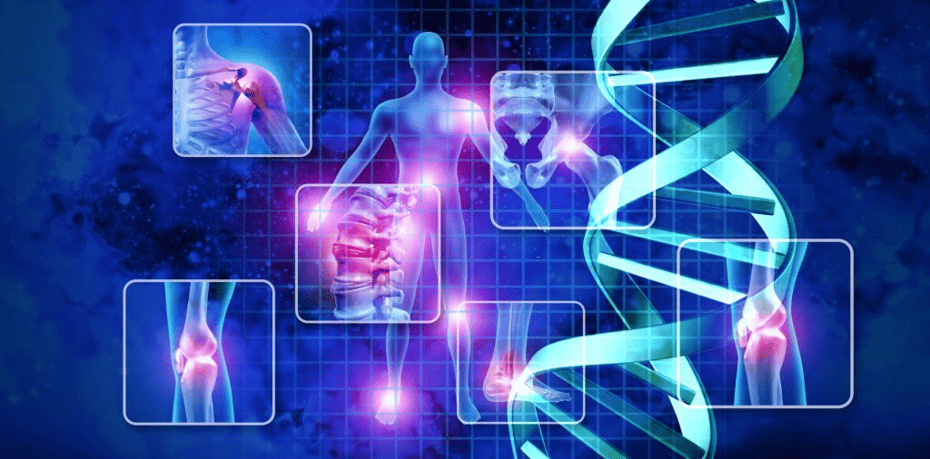Are you wondering what anti-inflammatory can I take after gastric bypass surgery?
Gastric bypass surgery is a significant medical procedure that can help you lose weight. Post-surgery care is crucial for ensuring the operation’s success and your overall well-being. While traditional medications and lifestyle changes are generally advised, it’s common to experience inflammation and discomfort after the surgery.
So, what anti-inflammatory options can you consider if you’ve undergone a gastric bypass?
Over-the-counter medications may only suit some, especially after such an intricate procedure. It’s essential to explore alternative routes, considering various risks and benefits. One promising avenue is stem cell therapy, a cutting-edge treatment that could offer a practical, tailored approach to post-operative care.
An Overview on Gastric Bypasses
Gastric bypass surgery, also known as Roux-en-Y gastric bypass, is a type of weight-loss surgery that involves changing the digestive system to help people lose weight. The result is that you feel full more quickly and consume less food, leading to weight loss. It also alters hormone levels in a way that aids weight loss. This type of surgery is usually considered only after other weight loss methods, such as lifestyle changes and medications, have been tried without success.
As with any surgical procedure, gastric bypass comes with risks and complications, such as infections, bleeding, and nutrient deficiencies.
Careful consideration, preparation, and post-surgical care are essential for its success.
Get an Appointment
Complete The Form Below And We’ll Get Back To You Immediately.
What Anti-inflammatory Can I Take After Gastric Bypass?
If you’ve undergone gastric bypass surgery, it’s crucial to consult your surgeon or another qualified medical expert for personalized advice on taking anti-inflammatory medications.
Nonsteroidal anti-inflammatory drugs (NSAIDs) like ibuprofen, naproxen, and aspirin are generally not recommended after gastric bypass surgery because they can increase the risk of ulcers and gastrointestinal bleeding in the newly formed stomach pouch. Instead, your healthcare provider might suggest other pain relief or anti-inflammatory medications that are safer for your altered digestive system.
Tylenol (acetaminophen) is often recommended as it doesn’t carry the same gastrointestinal risks as NSAIDs, but it’s crucial to follow the dosage guidelines given by your healthcare provider.
There are also prescription medications that can be used for pain and inflammation control post-surgery. These medications are generally considered safer for the digestive system.
Again, consult your healthcare provider for personalized advice tailored to your medical history and condition.
The Risks of Chronic Anti-Inflammatory Usage
Consistent use of anti-inflammatory medications, particularly nonsteroidal anti-inflammatory drugs (NSAIDs) like ibuprofen, naproxen, and aspirin, comes with risks and potential complications. While these medications can be effective for short-term relief of pain and inflammation, long-term or frequent use can have serious health consequences:
What anti-inflammatory can I take after gastric bypass? Is a good question to ask since NSAIDs can irritate the lining of your stomach and intestines, increasing the risk of ulcers and gastrointestinal bleeding. This is an exceptionally high risk for people who have had gastric bypass surgery or other bariatric surgery.
Long-term use of NSAIDs has also been linked to an increased risk of heart attack and stroke and can lead to kidney problems, including kidney failure in extreme cases. Although less common than kidney issues, some anti-inflammatory medications can cause liver damage over time. NSAIDs can interact with other medications, such as blood thinners and certain blood pressure medications, which can cause further complications.Consistent use of NSAIDs can also lead to elevated blood pressure, a risk factor for heart disease.
Given the associated risks, it’s crucial to use anti-inflammatory medications under the guidance of a healthcare provider, who can monitor for potential side effects and adjust your treatment plan as needed. If you are already at a high risk for any of these complications, like after gastric bypass surgery, alternatives to NSAIDs, like acetaminophen or prescription medications, may be considered. Always consult your healthcare provider for a treatment plan tailored to your needs.
Instead of worrying about what anti-inflammatory can I take after gastric bypass? Another safer and more innovative approach for anti-inflammatory treatment after surgery is stem cell therapy.
Consider Stem Cell Therapy for Relief from Chronic Inflammation

Stem cell therapy has gained significant attention recently as a promising approach to treating various medical conditions, including inflammation. Stem cells are unique because they can develop into different cell types and self-renew, offering the potential for regeneration and repair of damaged tissues.
Stem cells exert anti-inflammatory effects by modulating the immune response, often by releasing cytokines and other signaling molecules. They interact with various immune cells, like macrophages and T-cells, to down-regulate the inflammatory response and promote healing. This makes them a valuable tool in managing conditions characterized by chronic inflammation, such as rheumatoid arthritis, inflammatory bowel diseases, and more.
A 2020 study published in the International Journal of Molecular Sciences showed that besides helping to repair damaged tissues, stem cells are increasingly being shown to have the ability to control inflammation and help the immune system function better.
Another 2013 study published in Advances in Wound Care revealed that stem cells are a promising alternative for treating inflammation. Unlike existing therapies, stem cells can adapt to the wound environment and promote healing in a way that is closer to natural tissue repair. The cells can be used in various forms. The study also highlights the safety of stem cell therapy, stating that many patients have successfully undergone such treatments.
Contact GIOSTAR Chicago for Stem Cell Therapy
At GIOSTAR Chicago, we understand that living with chronic pain or degenerative diseases isn’t just a condition; it’s an ongoing challenge affecting every aspect of your life. That’s why we’re committed to bringing you the most advanced stem cell treatments available today.
Our therapies are designed to harness your body’s natural healing potential, giving you a potent option for treating various conditions, from joint pain to autoimmune diseases. Our team of highly qualified professionals is here to guide you every step of the way, from the initial consultation to post-treatment care.
Why choose us? We prioritize safety and efficacy, relying on extensive research and clinical trials to ensure we offer you the most effective stem cell treatment options. Our treatment plans are tailored specifically to you, considering your medical history, current condition, and long-term health goals.
So why wait? Take the first step toward a life less burdened by pain and disease.
Contact us today by completing this form or calling us at 844 446 7827 to learn more about our regenerative therapies and how they can help you heal your body
About GIOSTAR Chicago:
GIOSTAR Chicago is dedicated to developing the most advanced stem cell-based technologies and providing the best regenerative medicine for people who want to enjoy a healthy and active lifestyle.


